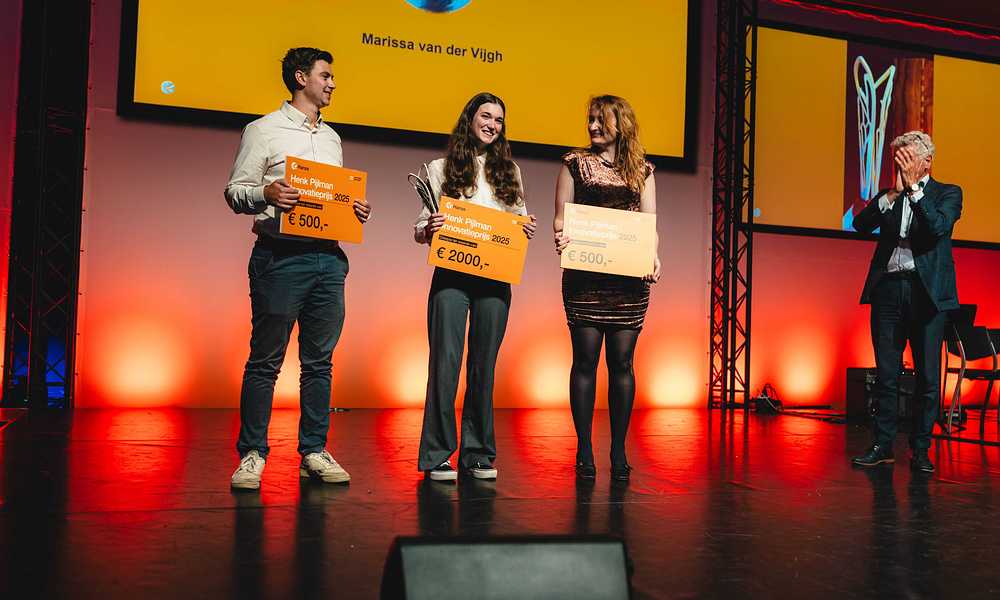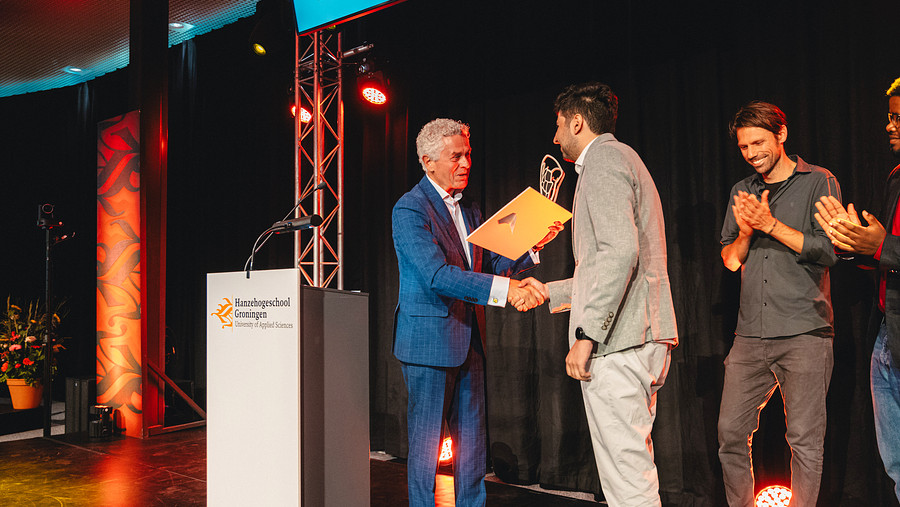
Many Hanze students achieve remarkable things in the areas s of social and cultural involvement and innovation. As Hanze we are proud of these students and have therefore created two student awards: the Henk Pijlman Innovation Award and the Hannie Schaft Prize. Every second year the Henk Pijlman Innovation Award is given to a student of Hanze University of Applied Sciences for a final paper. In 2025, the Henk Pijlman Innovation Prize was awarded to Marissa van der Vijgh.
This final paper is about practice-based research of a complex problem that has been tackled effectively and which has led to an innovative solution for the professional field. The Henk Pijlman Innovation Award is both an honorary prize and a monetary award of 2,000 euros accompanied by a unique object, designed by Kim van den Belt (Minerva Art Academy). The winners of the second and third prizes will each receive 500 euros.
Eligible for nomination are assignments completed by Hanze students which:
- have effectively addressed a complex problem with ground-breaking research
- offer an innovative solution for and with the professional field
- demonstrate commitment to Hanze's social missions
- are feasible/applicable
- are linguistically correct with good presentation/attention to detail
- have a well-structured argument, reasoning, and persuasiveness
- have been assessed with a minimum grade of 8 or equivalent.
The jury
- Ms Dina Boonstra, Director of NV NOM, Chair of the Supervisory Board of Hanze University of Applied Sciences and chair of the jury.
- Mr Jan Hugo Nuijt, Director of Marketing & Communication, Hanze University of Applied Sciences (representing the social mission ‘Strengthening a liveable and sustainable Netherlands’).
- Ms Lieke Dalstra, (representing the social mission ‘Transition to a healthy and active society’).
- Ms Kuneke Schraagen, Dean of the Institute of Communication, Media & IT (representing the social mission ‘Digital Transformation’).
- Mr Carlo Ezinga, Director of Coöperatieve Rabobank (representing the social mission ‘Energy Transition and Circularity’).
Winner Henk Pijlman Innovation Award 2025
Marissa van der Vijgh, student of Industrial Product Design, surprised the jury with groundbreaking research into a smart, sustainable and modular linear motor for the high-tech industry. Witec, a company that supplies complex parts for the chip machines of chip giant ASML, must continue to innovate to maintain this crucial position. To meet ASML's high demands, Witec needs to develop in the design of linear motors. Marissa's work has made a valuable contribution to this strategic goal, which helps to maintain employment in the region.
With this product, Marissa has demonstrated that a sustainable, profitable and scalable business model is possible. The jury was not only impressed by the pleasant readability and the logical structure of the research, but also by the unique, innovative product she has designed and its strong interdisciplinary character. As extra added value, she has not only designed and extensively tested this valuable product, but also came up with a sustainable and directly applicable solution that is in demand in the market. Her work encompasses the entire chain, connecting different disciplines.
Watch the video below in which Marissa explains more about her research.

Feedback component
How satisfied are you with the information on this page?